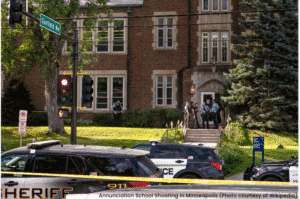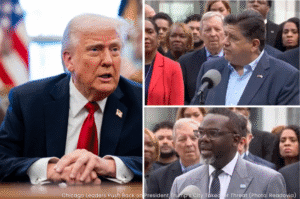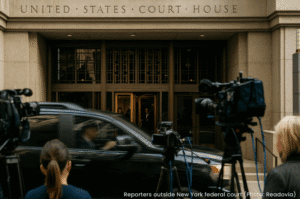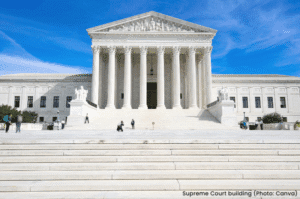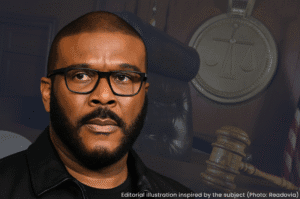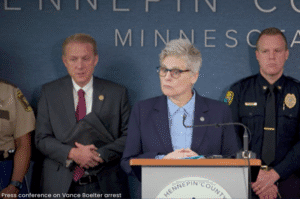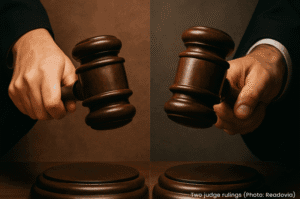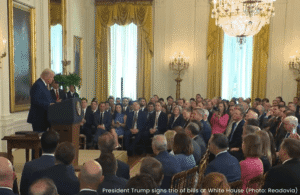Federal Court Sides with Harvard in Showdown Over Student Visas
In a second major legal defeat for the Trump administration this week, a federal judge on Friday issued a ruling that temporarily blocks the government from cutting off Harvard University’s ability to enroll international students — a move the school called “unconstitutional retaliation.”
The decision by U.S. District Judge Allison Burroughs halts the Department of Homeland Security’s surprise effort to strip Harvard’s federal certification to host foreign students, pending the outcome of a newly filed lawsuit. The court’s response comes just days before graduation, as campus officials warned of mass legal and academic fallout.
“Without International Students, Harvard Is Not Harvard”
The university’s legal filing, submitted Friday morning, argues that the government’s actions violate the First Amendment and threaten the status of more than 7,000 foreign nationals currently enrolled at Harvard. Most are graduate students, many serving as lab assistants, researchers, teaching fellows, and even athletes — roles that anchor the university’s daily operations.
“With the stroke of a pen, the government has sought to erase a quarter of Harvard’s student body,” the lawsuit reads.
Officials said the decision would have an “immediate and devastating effect,” leaving international students in legal limbo — unable to transfer, unsure of their visa status, and uncertain whether they can stay in the country at all.
The Accusations — and the Pushback
The Department of Homeland Security, led by Secretary Kristi Noem, accused Harvard of fostering an “unsafe campus environment,” citing alleged violence toward Jewish students and ties to “anti-American, pro-terrorist agitators.” The agency also referenced claims of past coordination with the Chinese Communist Party, saying Harvard had trained members of a Chinese paramilitary group as recently as 2024.
Harvard has denied the allegations and says it has already submitted thousands of data points in response to the government’s April request. The university called Noem’s latest demands “vague, retaliatory, and lacking legal basis.”
What’s at Stake: Graduate Schools, Global Talent, and Harvard’s Future
The impact of a full ban would be most severe at graduate-level programs, such as the Harvard Kennedy School (where nearly half of students are international) and the Harvard Business School (where roughly a third come from outside the U.S.).
If the government’s move stands, Harvard warned it would be barred from admitting any new international students for at least the next two academic years — and unable to reapply for federal certification for at least 12 months after that.
The ripple effects would be long-term. Harvard argued that even the threat of losing international student access could chill global applications: “Future applicants may shy away from applying out of fear of further reprisals,” the filing stated.
“This Is Madness,” Says Former Harvard President
The decision has already sparked outrage from academic and diplomatic circles. Lawrence Summers, former Harvard president and U.S. Treasury Secretary, said the policy would alienate rising global leaders and damage long-term U.S. interests.
“Some small fraction of these students are going to go on to be prime ministers,” Summers wrote. “They’ve now been turned into enemies of the United States. This is madness.”
Legal Questions and Political Backdrop
Harvard’s lawsuit notes that the Department of Homeland Security failed to follow its own procedures for revoking a school’s visa eligibility, which are typically based on administrative failures — not politics.
Historically, schools have lost certification for reasons like losing accreditation, failing to maintain basic facilities, or hiring unqualified instructors. Harvard’s case is different — and, the university argues, deeply political.
In a separate but related legal battle, Harvard is also suing the federal government over $2 billion in funding cuts that it claims were politically motivated.
The Battle is Not Over
The court’s decision to block the administration’s crackdown is temporary, but the implications are massive: This isn’t just about visas — it’s about academic freedom, immigration policy, and the power of the executive branch to punish dissenting institutions.
As of now, Harvard’s doors remain open to its international students. But the legal and political battle over who gets to walk through them is far from over.







